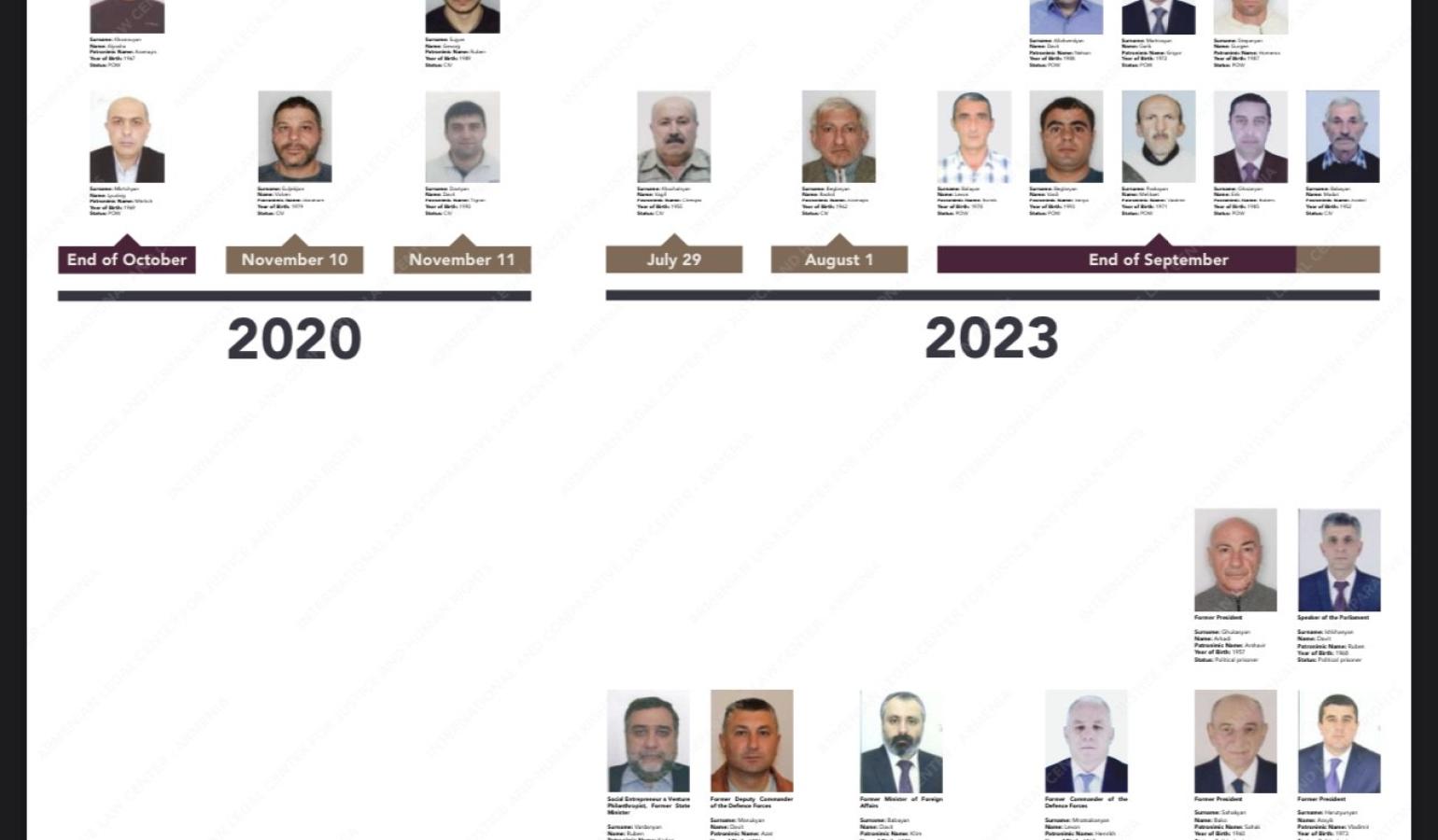
Azerbaijan has sent to court the case of the Artsakh military-political leadership, who are unlawfully detained in Baku. Speaking about these fabricated cases in an interview with Sputnik Armenia, Siranush Sahakyan, head of the International and Comparative Law Center, stated that political retribution is taking place, and the legal proceedings merely conceal the persecution, which aims to take revenge on those who contributed to the process of Artsakh's right to self-determination.
"Within the framework of these fabricated cases, trials are taking place, and Azerbaijan's political narratives are being formalized through the judicial process, presenting them as the truth. Azerbaijan is attempting to appear more convincing to the international community through judicial truth, at a time when the international community remains skeptical of Azerbaijan's claims. Since these individuals are under Azerbaijan's control and all resources are concentrated in the hands of the Aliyev family, they are ruthlessly carrying out retribution," said Siranush Sahakyan.
According to the official statement, 15 individuals are accused of crimes in 2,548 episodes. Among them are Arkadi Ghukasian, Arayik Harutyunyan, Bako Sahakyan, Davit Ishkhanyan, Davit Babayan, Lyova Mnatsakanyan, Davit Manukyan, Garik Martirosyan, Melikset Pashayyan, Gurgin Stepanyan, Levon Balayan, Madat Babayan, Davit Alaverdyan, Vasili Beglaryan, and Erik Ghazaryan. Ruben Vardanyan is not among them because he faces a separate life sentence in a 100-volume case, which is written only in Azerbaijani and is not even translated for the lawyers.
Speaking about the fact that Baku is not revealing details regarding Ruben Vardanyan's case, citing state secrets, Sputnik Armenia inquired how far Azerbaijan could go with this justification. "In criminal cases, information that constitutes state and military secrets may become the subject of investigation. For example, the state may investigate a case of treason, and these cases are resolved in courts. Courts cannot administer justice if the information is not discussed with the involvement of the participants in the trial. There are also human rights-related cases where it is stated that materials classified as state secrets should be accessible to the parties. The defense party has the right to familiarize itself with and comment on them, and if they are kept secret, the trial does not meet the element of fairness," responded Siranush Sahakyan.
Regarding the fabricated cases, Azerbaijan's Prosecutor General's Office has invited Armenia to cooperate. In response to this, Siranush Sahakyan, head of the International and Comparative Law Center, stated that Armenia and Azerbaijan are parties to many agreements within the framework of the CIS, but Azerbaijan could only make such an offer if it had been equally diligent in cooperating with the Armenian authorities on issues related to human rights violations.
"Currently, investigations are being conducted in Azerbaijan regarding judicial murders and forced disappearances, and no investigation can be effective without the involvement of the victims. Instead of cooperating with the relevant authorities of Armenia to ensure proper representation of the victims and the restoration of their rights in ongoing trials, Azerbaijan shows zero cooperation and pretends to have a desire to cooperate with the Armenian authorities. There cannot be double standards here; if the goal is cooperation, not political shows for international audiences, then Azerbaijan must start that cooperation from the perspective of ensuring the rights of Armenian victims and work with the Armenian authorities to bring its own criminals before the court in Azerbaijan. If these actions have not been taken, Azerbaijan has no internal basis for expecting cooperation or support from the Armenian authorities," emphasized the human rights defender.